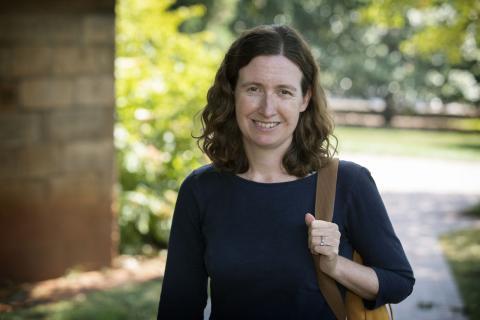China Scherz
Education
Ph.D. University of California, San Francisco and Berkeley
Biography
I am a cultural medical anthropologist. My research and teaching interests are focused on how people construe and negotiate ethical problems of care. Through a diverse range of projects, I have explored: how people decide whom they should care for and how, how these values are instilled, and how they change over time.
My recent book Having People, Having Heart: Charity, Sustainable Development, and Problems of Dependence in Uganda is an analysis of non-governmental organizations working with AIDS orphans and children with disabilities in Uganda. In it, I argue that despite the popularity of the concepts of sustainability, community participation, and cost-effectiveness in international development, Ugandan villagers have experienced the shifts away from the distribution of material resources, which are tied to these concepts, not as acts of empowerment, but as suspect refusals to redistribute wealth. By contrast, many rural Ugandans have come to see redistributive forms of Catholic charity as deeply intertwined with their own moral frameworks. At a more theoretical level, the book engages Africanist literature on hierarchical interdependence, and reexamines interpretations of Marcel Mauss that focus on the inevitable wounds of the charitable gift.
Having People, Having Heart also examines techniques for ensuring accountability entailed in both charity and sustainable development. Here, I attend to the ways in which particular instantiations of virtue ethics and audit differ in their understandings of how ethico-moral codes ought to be implemented, the role of character formation within these ethical systems, and the forms of thought and action that are enabled or foreclosed by these models of accountability.
My interests in ethics and care are also reflected in my current research on religion and addiction in Uganda. The per capita consumption rate among Ugandans who drink is among the highest in the world. The Ugandan government, individual drinkers and their loved ones are increasingly coming to see this high level of alcohol consumption as a serious problem and have taken up varied methods to intervene in cases of problematic drinking. These methods include legislation, in-patient rehabilitation, prayer and participation in religious communities, indigenous forms of herbal medicine, and rituals intended to engage the ancestors and other spirits.
Scholars writing on addiction have often raised complex questions concerning the proper way to balance understandings of intention, the will, and the biochemical interactions between alcohol and the human body. While questions of human agency, intention, biology, and culpability are also important in Uganda, the narratives told by Ugandans who have stopped drinking frequently include other agents involved in producing and halting problematic drinking. These other agents are often supernatural beings from Christian and Kiganda religious traditions. This study of alcohol use and recovery in Uganda will explore how Ugandans’ understandings of the involvement of supernatural forces changes outcomes and experiences of recovery and scholarly understandings of questions about “the will,” freedom, and agency in relation to addiction.
Specializations
Cultural anthropology, medical anthropology, alcohol, addiction, development, bureaucracy, accountability, Christianity, ethics, Uganda, Africa, Ireland, United States
Selected Publications
2014 - Having People, Having Heart: Charity, Sustainable Development, and Problems of Dependence in Central Uganda . Chicago: University of Chicago Press.
2013 - Let Us Make God Our Banker: Ethics, Temporality, and Agency in a Ugandan Charity Home. American Ethnologist 40(4):624-636.
2011 - Protecting Children, Preserving Families: Moral Conflict and Actuarial Science in a Problem of Contemporary Governance . Political and Legal Anthropology Review 34(1):33-50.
2010 - ‘You Aren’t The First And You Won’t Be The Last’: Reflections on Moral Change in Contemporary Rural Ireland. Anthropological Theory 10(3):1-16.
2010 - Review of Catholic Women of Congo-Brazzaville: Mothers and Sisters in Troubled Times, by Phyllis M. Martin. Mission Studies 27(2):281-282.
2004 - Behforouz HL, Kalmus A, Scherz CS, Kahn JS, Kadakia MB, Farmer PE. Directly Observed Therapy for HIV Antiretroviral Therapy in an Urban US Setting . Journal of Acquired Immune Deficiency Syndrome 1;36(1):642-645.

